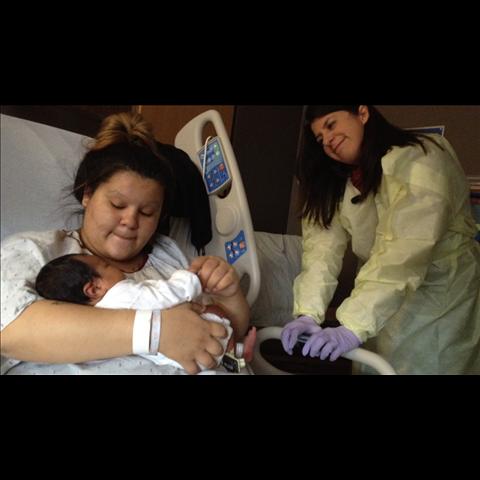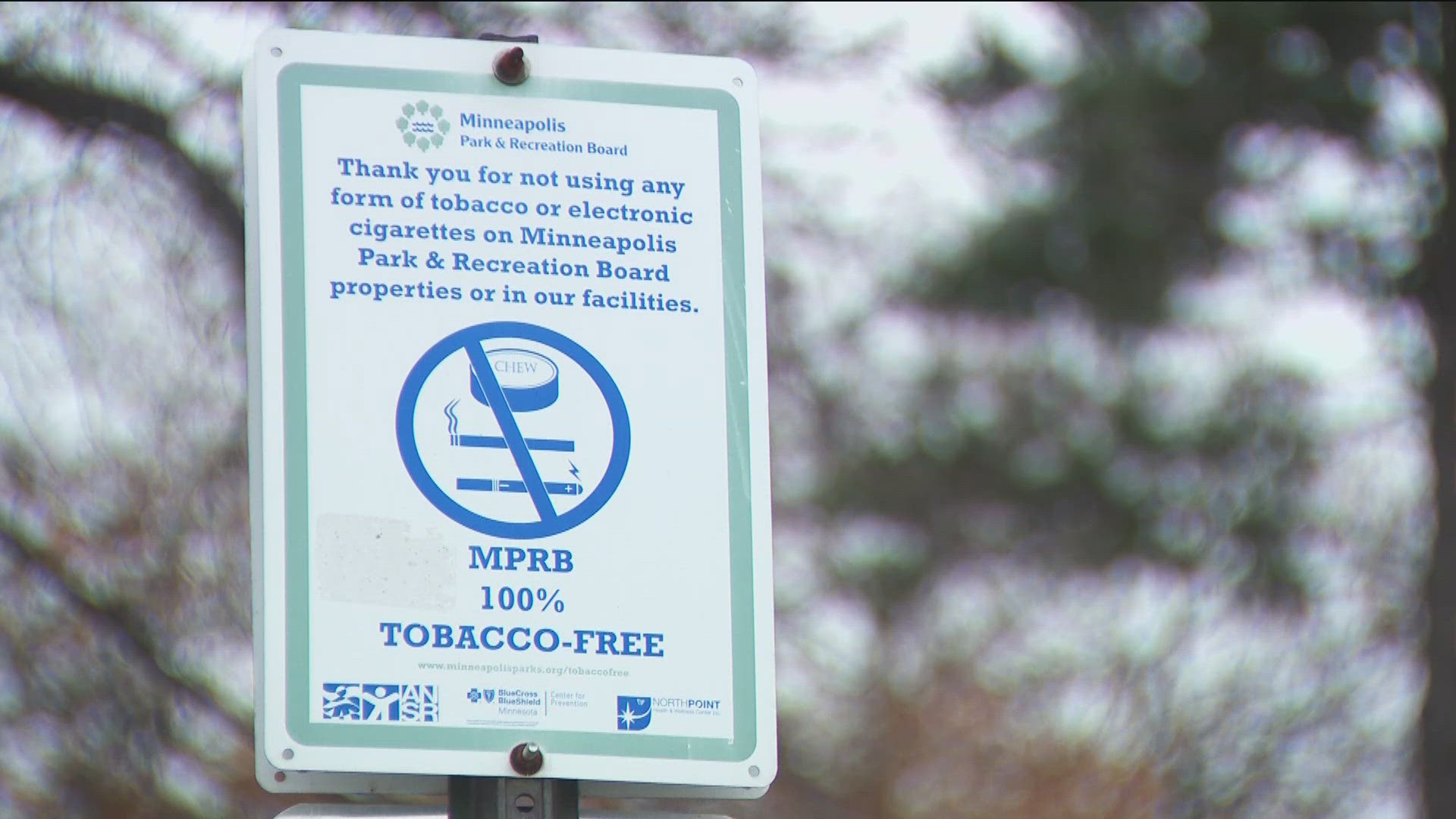SHAKOPEE, Minn. - Cassandra Beaulieu has all the anxiety of a first-time mom as her contractions become more intense.
As nurses come and go from her hospital room, Beaulieu knows the next few hours will be among the most difficult, yet joyous, of her life. She also knows that by the end of week she'll be back in her cell at Shakopee State Prison.
"It makes me really sad," said Beaulieu from her prison bunk, two weeks earlier. "I didn't imagine I was going to be in prison or jail when I had my child."
Beaulieu found out she was pregnant the day she arrived at Shakopee. The intake pregnancy test is mandatory.The testfollowed Beaulieu's conviction for stealing two televisions from the Little Falls Walmart and leading police on a high speed chase.
It was her second trip to Shakopee.
"All my crimes have been related to drug use," Beaulieu says sadly.
She's hardly alone. Tougher drug sentences are a principle reason the population has exploded at Minnesota's sole state prison for women from 85 inmates at the prison's opening 27 years ago to 657 today.
Though some inmates at Shakopee are locked up for life, most stays are short. Six out of ten women sent to the prison are back out within two years of arriving.
Currently fourteen of them are pregnant.
Until four years ago pregnant inmates were, for the most part, left on their own.
"I guess it seemed wrong to me," said Erica Gerrity, a one-time graduate school intern at the prison who remembers being struck by the sadness she saw among the prison's pregnant women.
Gerrity, who now works privately as a social worker, convinced prison officials to allow her to begin a weekly support group for pregnant inmates with an emphasis on prenatal education.
But Gerrity had even bigger plans.
Prison rules prohibit inmates like Beaulieu from having family present at the hospital for any part of their babies' births.
Just two corrections officers and the medical team were present in the delivery room at St. Francis Regional Medical Center a few miles from the prison.
But when Beaulieu arrived to give birth, she was joined by a familiar face, Cara Kreuziger, Beaulieu's personal doula or birth coach.
"Long full breaths," whispers Kreuziger as she holds Beaulieu's hand. "I'll breathe with you."
If the notion of a doula is already raising your ire as a prime example of coddling inmates, take a breath yourself and read on.
"The point is, it's benefiting us all," says Gerrity about the privately funded doula program she named "Isis Rising"after the Greek goddess of motherhood and fertility.
Since its launch, the program has tracked the birth experiences of 40 inmates.
In 2010, the year before inmates were routinely assigned a doula, 11 babies were delivered, seven of them by costly Caesarean sections paid for with tax dollars.
"Women would tell each other if you get a C-section you get one more day with your baby in the hospital," recalls Gerrity.
But after pregnant inmates were partnered with doulas, the C-section rate plummeted with just one C-section in the last 29 births.
"We're talking about a three percent C-section rate," said Gerrity. "The national average is about 30 percent."
The hours pass as Beaulieu'scontractions grow more intense.
Corrections officers come and go from the delivery room as their shifts change. Even as Beaulieu cries a few feet away in her bed, prison policy does not allowofficers to extend even an empathetic touch.
But Kreuziger can.
She holds Beaulieu's hand and strokes her hair, offering encouragement. At one point, she walks with Beaulieu in the hall with a corrections officer in tow.
Kreuziger says officers have expressed their gratitude for her presence, "because it takes a lot off of them. They can just do their job without having to run and get the nurse or something like that."
In addition to reducing C-section rates, the doula program touts another impressive statistic. Not one of the 40 inmates tracked has delivered a low birth weight baby.
Dr. Rebecca Shlafer, PhD, a University of Minnesota researcher studying the prison doula program, believes that's no accident. "We know that maternal stress during pregnancies isn't good for moms and it isn't good for babies," she says. "Why wouldn't we want to reduce maternal stress?"
Beaulieu was 14 years old when her mother was killed in a car crash. Just before sunrise, amid a newborn's cries and a mother's tears, Beaulieu learned what it feels like to be the parent of a daughter too.
"I'm a proud doula, she did wonderfully," says Kreuziger as Beaulieu cuddles her healthy 8 pound, 9 ounce baby she named Zariyah.
Lori Timlin, the prison's parenting coordinator, believes society benefits when inmates have support before and during their births regardless of the crimes they committed. "I think about these kids who are born who deserve to have a healthy mom during pregnancy," she says. "We want to support that happening."
But there are still reminders this is no ordinary birth. Prison policy prohibits the restraining of pregnant inmates. No longer pregnant, Cassie is strapped to her bed by a seatbelt-like ankle restraint shortly after her baby is born.
She'll be allowed to bond with her daughter for 48 hours, but dreads what comes after that. "I don't want to think about that part yet," she says.
Two days later Kreuziger returns to the hospital, for what the doulas have come to call "separation day."
Kreuzigers boards the elevator for the third floor birthing center. "It's the day that I don't look forward to, none of us do," she says on the ride up.
For two days, Beaulieu has barely put her daughter down. Her gaze is fixed on her daughter as she tries to memorize her face. "I wanted her with me the whole time," she says.
Corrections officers give her a few more minutes, then stand as Beaulieu walks slowly into the bathroom to change from her hospital gown into her gray prison uniform.
As she emerges, Kreuziger hands Beaulieu her baby. The new mother quietly sobs as she pulls Zariyah to her cheek. She hands her baby back to Kreuziger before officers place the new mother in metal arm and leg restraints.
Kreuziger brings the baby close to the inmate for one last kiss before Beaulieu is pushed in a wheelchair by corrections officers from the room.
Within seconds her baby is wheeled by a nurse to another room, where Beaulieu's aunt is waiting to take Zariyah home. By policy, Beaulieu is not allowed to meet or even see her aunt.
She is loaded into a van for the short drive back to the prison. She will spend the next few days in her cell crying.
"For me to be able to drive away and go back to my life is kind of strange," says Kreuziger, as the van leaves the hospital parking lot. She has regular clients too, mostly mid- to upper-income couples who pay for her doula services. Those experiences end nothing like this.
"A lot of the women have really difficult post-partum depression," explains Timlin, "because not only have they given birth but now they're separated from the child."
But a few evenings later Beaulieu is smiling again as she rejoins the prison's new moms group for the first time since giving birth. Other inmates fawn over the photos Kreuziger snapped of Zariyah at the hospital. Beaulieu is allowed to keep five pictures of her daughter at the prison.
The other inmates hand Beaulieu a baby card signed by each of them. Her release will come sooner than theirs, just 16 days after the meeting and six weeks after her daughter's birth.
"She's just waiting for me to come home," says Beaulieu.
Nearly all the pregnant inmates at Shakopee will eventually go home to their babies.
The hope at the prison is that better births will make better moms and maybe even better citizens too.


